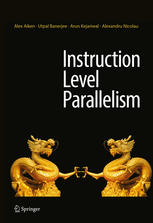

Most ebook files are in PDF format, so you can easily read them using various software such as Foxit Reader or directly on the Google Chrome browser.
Some ebook files are released by publishers in other formats such as .awz, .mobi, .epub, .fb2, etc. You may need to install specific software to read these formats on mobile/PC, such as Calibre.
Please read the tutorial at this link: https://ebookbell.com/faq
We offer FREE conversion to the popular formats you request; however, this may take some time. Therefore, right after payment, please email us, and we will try to provide the service as quickly as possible.
For some exceptional file formats or broken links (if any), please refrain from opening any disputes. Instead, email us first, and we will try to assist within a maximum of 6 hours.
EbookBell Team

0.0
0 reviewsThis book precisely formulates and simplifies the presentation of Instruction Level Parallelism (ILP) compilation techniques. It uniquely offers consistent and uniform descriptions of the code transformations involved. Due to the ubiquitous nature of ILP in virtually every processor built today, from general purpose CPUs to application-specific and embedded processors, this book is useful to the student, the practitioner and also the researcher of advanced compilation techniques. With an emphasis on fine-grain instruction level parallelism, this book will also prove interesting to researchers and students of parallelism at large, in as much as the techniques described yield insights that go beyond superscalar and VLIW (Very Long Instruction Word) machines compilation and are more widely applicable to optimizing compilers in general. ILP techniques have found wide and crucial application in Design Automation, where they have been used extensively in the optimization of performance as well as area and power minimization of computer designs.